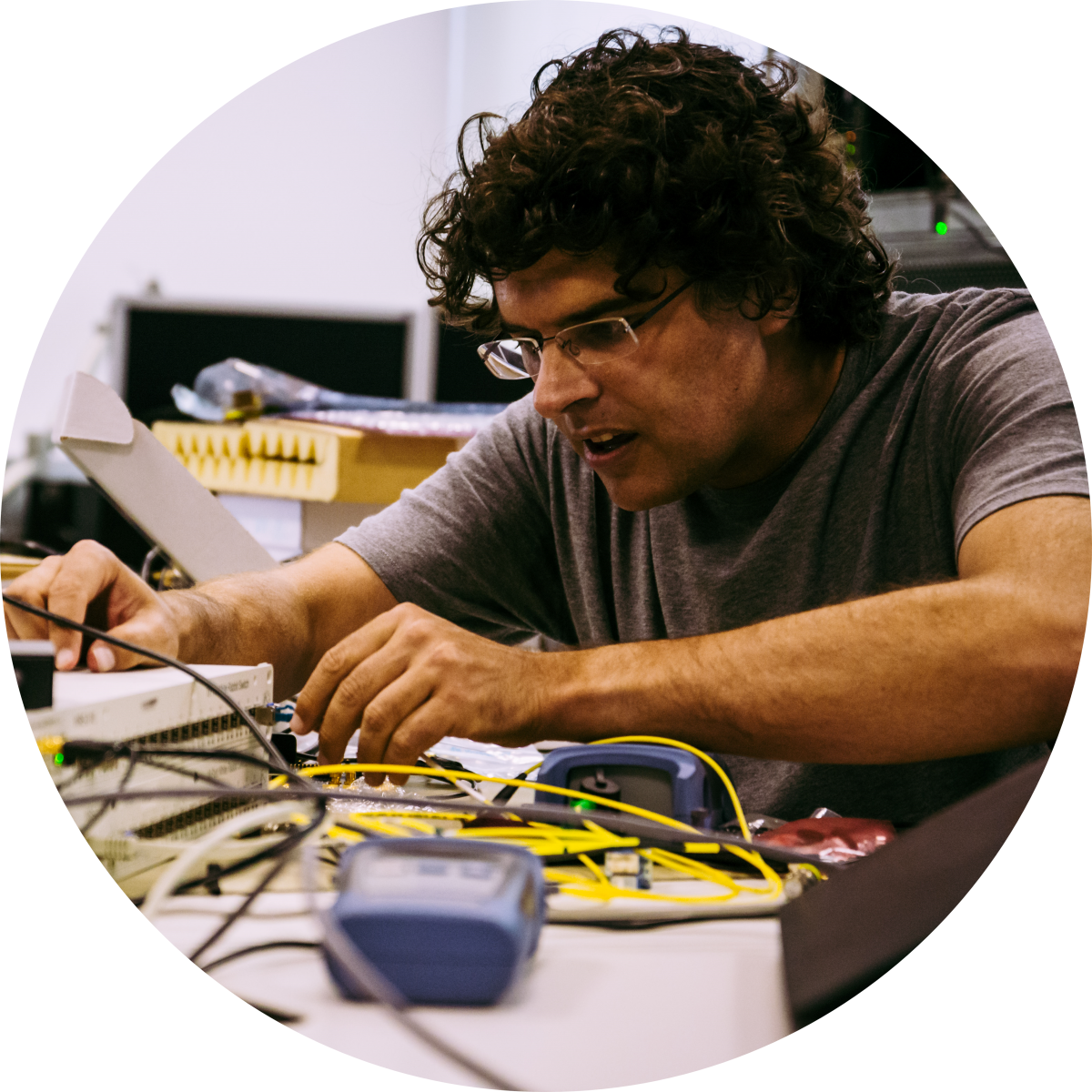Time does not stop when you start reading this text. Even if you stop reading right now, time keeps moving forward. Time runs like a little child and as the Polish composer and virtuoso pianist, Fryderyk Chopin, said “time is the best way to check who is the wisest and most patient instructor”, since it “knows everything and shows all the cards”.
Time is also one of Greg’s great interests. This electronics engineer, who has been working at CERN for 8 years, has always been fascinated by time synchronization. Also by computers, electronics, and music, and its common materiality: keyboards. Greg has been programming since he was about 13 and playing piano since he was around 10. Now, he is happily merging these two passions at CERN.
He was born in Siedlce, where he misses the fresh fruits and vegetables he used to pick up from his parents’ garden. The city is located about one hundred kilometres east of the Polish capital, where Greg studied electronics and computer engineering, except for half a year, which he spent at the Technical University of Denmark (DTU), learning in a different environment and experiencing another culture.
At the Warsaw University of Technology his friends made jokes, nice ones, about him because he was like the White Rabbit from Alice in Wonderland, always glued to a clock. And this is partly because Greg, for his master’s thesis, was working on the White Rabbit Project, which is the most accurate network time synchronization in the world.
In 2012, right after graduating, Greg became a CERNie. He works in the beam controls hardware and timing section. And, since 2016, he has also been part of the WP18 of the Hilumi project. He loves what he called the CERN combination: having a unique set of very challenging problems to be solved and being part of a large multidisciplinary team with which to solve them.
The French poet, Paul Valéry, wrote that “the problem of our time is that the future is no longer what it used to be”. That future that Greg tries to see in small achievable steps. “At this stage, I really hope that this whole pandemic situation ends sooner rather than later and that we will be able to travel again and discover the world around us that I love”, he confesses.
He is really looking forward to new advances in science, to understand things that we do not understand yet. He also hopes more and more people will become aware of the climate crisis and that we will succeed in finding a solution. In taking care of our planet, where there are nice melodies, and therefore beauty, which, for Greg, has a direct association with music. Also with poetry.
One of the verses of Wisława Szymborska, the Polish poet who received the Nobel Prize in Literature in 1996, says that “every beginning is only a continuation”. Greg fully agrees with this because in our lives, we have many new chapters, many beginnings, and in each of them, we benefit from the experience of our previous chapters. From what, in a way, we have already written. “So I would say that our time is enriched by past experiences, and each new chapter is the continuation of our global journey”.
A journey with no end that sounds like the song of the American progressive metal band, Dream Theater. The dance of eternity.

